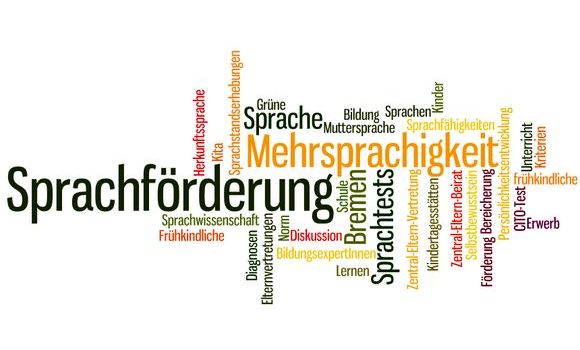
In contrast to other polyglot countries such as Canada, this linguistic diversity in Switzerland is special in that it unites language communities of different sizes under one roof and includes a total of 4 language varieties among its national languages. To be an official national language, a language must meet certain criteria. Thus we have already arrived at the first reason why one should learn foreign languages in Switzerland.
- Multilingualism in Switzerland: 4 national languages
In Switzerland, 63.7% of the population speak German, 20.4% French, 6.5% Italian and a small proportion of 0.5% speak Romansh (source: 2000 census). To meet the criterion of a national language, an idiom must first be spoken by the majority of the population. In Switzerland, the national language German is thus a collective term for all existing dialects. Furthermore, a national language must be defined as such in the constitution. National languages are usually also official languages and are therefore used in all publications of the state. In Switzerland, Romansh is an exception because it is only used in dealings with people who speak Romansh. This linguistic diversity must of course be appreciated and promoted by making it part of the education system and by offering language lessons in schools. However, German-speaking children and young people meet with a great deal of resistance when it comes to learning a Romansh language such as French or Italian and, conversely, the French-speaking Swiss and Ticino find it very difficult to learn German. This fact leads us to the second reason why we should get a step closer to our national languages.
- Overcoming the “Röstigraben”
Together with the language barriers that Swiss people often encounter, cultural differences naturally also play a role. There is a gulf between German and French-speaking Switzerland, the “Röstigraben”, which is usually politically connoted. Some dispute who is more involved in the flow of communication and to what extent. Bilingual cities such as Fribourg or Biel/Bienne are home to bilinguals and are therefore the exception. But the people of Zurich, for example, already regard the people of Geneva as French. But if you do the splits across the Röstigraben, for example by booking a French course with a Romand / Romande, you not only get closer to the language, but also to the mentality. We believe you will certainly be delighted!
- Italian “per le vacanze” and more
Similar to the phenomenon between German-speaking and French-speaking Swiss, the Italian language is difficult to access for Germanophones. And yet most German speakers claim that Italian is easier to use. However, the language is usually associated with holidays, where everything is usually easier anyway. To counteract the fact that Italian is no longer a compulsory language in school lessons, intensive programmes are offered to children between 12 and 13 years of age so that they can communicate in Italian in everyday situations within a week. How would it be if you too were to follow such a programme and book an Italian course right now? At inlingua Zurich you benefit from small groups with a great learning effect, and within a short time you will speak more than just holiday Italian.
- Creating identity
By taking smaller language groups such as Romansh into account, not only are minorities included in Switzerland’s cultural and heritage heritage, but identity is also increasingly being created. The use of different languages serves the purpose of group identity and is used extensively in the Swiss army, for example, by translating phrases of instructions into another national language, such as “Forza ragazzi!” This is the finding of the National Research Programme “Language diversity and language competence in Switzerland” (NRP 56).
But in light of the globalisation processes, it has become a fact that more people in Switzerland speak Spanish or Portuguese than Romansh. In addition, priority is given to English and primary school pupils in the canton of Zurich receive English lessons as early as the 2nd grade. French lessons, on the other hand, do not begin until the 5th grade. Is this prioritisation correct in a Switzerland where linguistic diversity is to be preserved as a cultural asset?
- Being perfect is not the goal
The linguistic fluency in Switzerland is no accident. The credo is that it is better to speak several languages imperfectly than to be able to speak only one of them perfectly. Test your fluency now by taking a placement test at inlingua Zurich for French, Italian and other languages to determine your level directly.